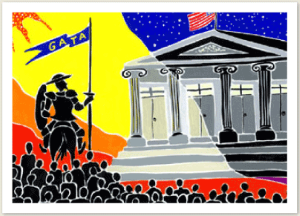 Remember Europe’s “austerity”, or rather as we dubbed it, fauxterity?
Remember Europe’s “austerity”, or rather as we dubbed it, fauxterity?
Of course, how could you forget: after all everything that is wrong with Europe is blamed not on government corruption and the complete lack of reform, enabled so gloriously by Goldman’s custodian of Europe’s money printer who would do “whatever it takes” to mask Europe’s sad reality that without reform the continent is doomed, but on the intolerable, insufferable imposition of hated, loathed austerity on Europe’s insolvent nations. After all, how on earth are they all supposed to get out of their debt-induced depressions if they have to, gasp, cut their debt!
So yeah, we get the propaganda. What we don’t get is whether everyone in Europe is completely incapable of reading simple numbers, is atrocious at math, or simply doesn’t understand the definition of austerity.
According to the just released government debt data for Q2 2014 where we find that, in a very peculiar definition of what austerity supposedly means in Europe, total debt to GDP for the Euro Area rose once again, from 91.9%, to a new all time high of 92.7%, or in absolute terms from 9.15 trillion in government debt to 9.26 trillion.
This post was published at Zero Hedge on 10/23/2014.
























 Follow on Twitter
Follow on Twitter
Recent Comments